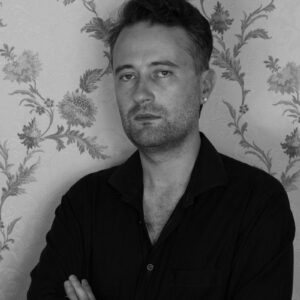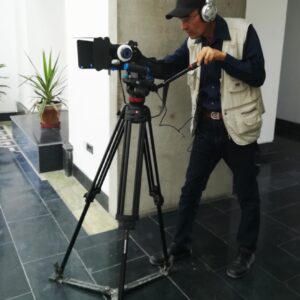1- First, please introduce yourself to us from an artist’s point of view-
I am Madina Azimi, born in 1379 in the beautiful city of Kabul. In 2016, I received my bachelor’s degree from Mehrabuddin School and after passing the entrance exam, I enrolled in the Dari Persian Language and Literature Faculty of Kabul University. At the same time, I also studied Islamic sciences at Asasat Institute.
Ms Azimi, among the poets you liked, it seems that Ms Farrokhzad was also included. Her personality is not far from the conditions of Iranian intellectuals. When Iran was moving towards modernism, and after several years, everything disappeared like an earthquake, although this experience is not unfamiliar to you either.
2- Why do you like Forough? Have you been interested in her single poem or her single film?
Forugh Farrokhzad, the trailblazer after whom women bravely stepped into the society and the world to search for themselves. Forough considered men to be the main cause of women’s captivity, for this reason, she rebelled against the tradition of patriarchy. Forough created a new world in poetry for women. In addition to the poems of this fighting lady, her documentary film was also interesting and beautiful to me, like her poems, The House is Black. Written and directed by Farrokhzad herself.
You have also been a women’s activist, or perhaps we can say a cultural activist for young girls a young academic leader and a student of Persian literature. Some positive and mystical Persian writers like Dr Elahi Qomshei consider Persian literature as a way of spiritual healing and victory in this world and the hereafter.
3- Do you still consider yourself as powerful and purposeful as before? Maybe it can be said that today the hope of the educators is not only their personal hope, it is also the hope of a community. How much do you agree with this statement?
4- In your opinion, can Persian literature today be the way to save the Persian-speaking cultural nation in these countries, as it was after the Mongol invasion or other historical ups and downs?
Here, I would like to mention our field of work, food security.
In the days after the overthrow of the previous government, something like the apocalypse happened and we saw that food became scarce, not even bread. It was painful for me. On the one hand, human disaster and on the other hand, the people of the same tribe are suffering and starving.
6- If you want to describe those days and scenes to us, what would that expression be?
The day when the republic fell cannot be described at all because it was not a sense that could be tolerated. In one day, all our dreams, hopes and futures were put on the black soil and left. We are hungry for many things and our goals and dreams are indescribable.
You know that today’s war in Europe and the closure of the grain export route have caused the global price of food to rise on the one hand, and on the other hand, Russia has closed the sea route for the export of grain to Ukraine, which has been the largest seller of grain to humanitarian organisations in connection with the United Nations food. On the other hand, this has created a dangerous challenge. At the same time, tens of millions of people around the world need food aid and there is not enough funding. Looking at this chaotic market, …



